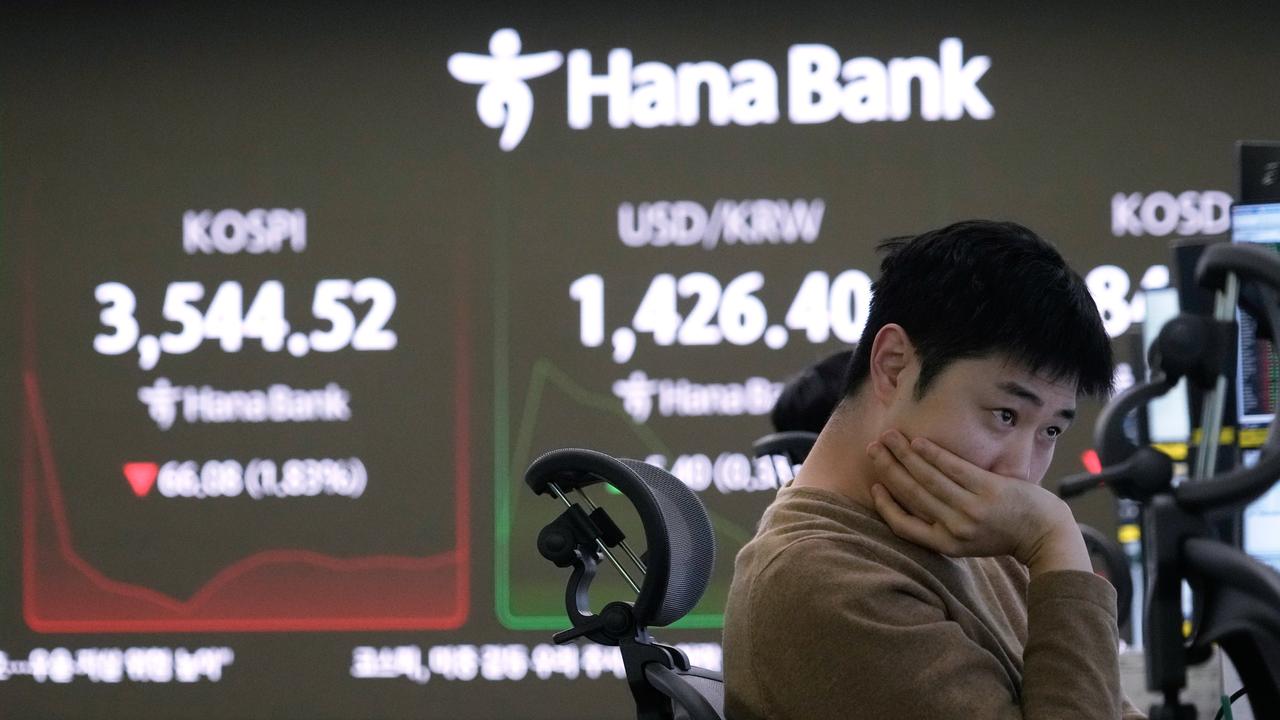
World markets have found steadier ground after being whipsawed by broadsides in the US-China trade war, while gold hit new record highs in a sign that uncertainty remained high.
While US President Donald Trump had threatened 100 per cent tariffs on China from November 1 and Beijing threatened countermeasures, he sounded more conciliatory on Sunday, posting that everything would be fine and the US did not want to “hurt” China.
European shares opened higher on Monday, while US stock futures also firmed, although trading was subdued by a holiday in Japan and the United States.
In Europe, focus was on France with reappointed prime minister Sebastien Lecornu facing pressure to get a budget deal across the line.
And in a sign that global uncertainties remained strong, gold hit fresh record highs above $US4,000 an ounce, while Asia stocks fell sharply.
Beijing defended on Sunday its curbs on exports of rare earth elements and equipment as a response to US aggression, but stopped short of imposing new levies on US products.
Many world leaders, including Trump, are due to meet in Egypt on Monday to discuss ceasefire plans for Gaza.
Japanese markets had their own problems with the ascension of new LDP leader Sanae Takaichi to prime minister now in doubt, contributing to a sharp rebound in the yen and a five per cent dive in Nikkei futures on Friday.
Japan’s Nikkei was closed on Monday, while MSCI’s broadest index of Asia-Pacific shares outside Japan tumbled 1.5 per cent.
Chinese blue chips fell 0.5 per cent, though the rare earth and semiconductor sectors both firmed.
Data pointed to some resilience in trade with exports rising 8.3 per cent, almost twice the forecast, and imports up strongly.
US stock futures pointed to a rebound when Wall Street reopens on Tuesday, with S&P 500 and Nasdaq stock futures up more than one per cent each.
Earnings season kicks off this week with major banks reporting, including JPMorgan, Goldman Sachs, Wells Fargo and Citigroup.
Politics cast a cloud over Europe as the French presidency announced Lecornu’s new cabinet line-up on Sunday, reappointing Roland Lescure, a close ally of Emmanuel Macron, as finance minister.
Lecornu must now steer a budget for 2026 through a deeply divided parliament and faces the threat of a no-confidence vote.
France’s 10-year bond yield was up just 1.2 basis points at 3.48 per cent and French stocks rallied 0.5 per cent in a sign that investors were holding on to hopes for some near-term political stability.
Currency markets also saw some stabilisation after Friday’s rush into the traditional safe havens of the Japanese yen and Swiss franc.
The dollar rallied 0.7 per cent to 152 yen, having slid 1.2 per cent on Friday from a top of 153.29.
The euro was steady at $US1.1605, while the dollar gained 0.3 per cent on the Swiss franc to 0.80105.
The dollar index was steady, after losing 0.6 per cent on Friday.
In bond markets, cash Treasuries were closed for a holiday, while government bond yields in Europe nudged up.
US and European bond yields had hit multi-week lows after Trump’s tariff threat on Friday, while investors had added to wagers on more rate cuts from the Federal Reserve.
Oil prices regained some ground on hopes the US and China would find some compromise on trade to avoid fresh tariffs.
Brent bounced 1.6 per cent to $US63.74 a barrel, while US crude rose 1.6 per cent to $US59.83 a barrel.
This post was originally published on Michael West.